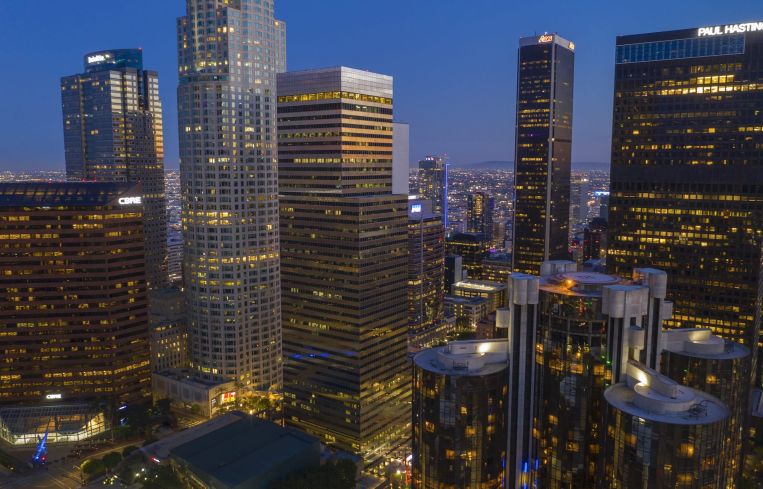Back to Work Check-In With CBRE LA’s Todd Doney
By Greg Cornfield April 14, 2021 10:00 am
reprints
While the upheaval caused by the coronavirus crisis begins to settle, the fate of the modern workplace is still very much up in the air.
Leasing activity has been dismal since March 2020, when office workers were initially restricted to remote work. It introduced well-documented ambiguity to the office market, and obscured tenant needs and property values. Now, over a year later, there are mixed reports about employers’ plans for a return to the office.
Some big-name, market-drivers like Spotify and Salesforce have recently announced plans to give employees more permanent flexibility to work from home. At the same time, some of those same firms are announcing return-to-office plans; signing sizable, long-term leases; or investing billions of dollars into office real estate, helping to re-establish confidence.

R. Todd Doney, vice chairman at CBRE’s L.A. office, has a front row seat to the city’s evolving office scene. He’s part of the team leasing Hudson Pacific Properties’ new Harlow office building in Hollywood, which just secured post-production firm Company 3 to an 11-year deal to take more than half of the 130,000-square-foot property. The deal shows how Los Angeles is uniquely positioned to see an expedited recovery, thanks to its entertainment and media base, which defied the odds and continued to grow over the past year.
Doney spoke with Commercial Observer about Angelenos going back to work this year as the economy reopens, his projections on rent declines and just how concerned we should be about the current sea change.
Commercial Observer: We’ve seen some recent shifts by influential companies in their office strategies. Is that a sign that there will be significantly less office demand, even after most people are vaccinated?
Todd Doney: The pandemic has definitely shifted how tenants think about their office space. The percentage of people who want to work from home is clearly higher than ever before. […] But still, only about three percent of tenants in the market say they have a plan to move to a completely remote work setup. That means almost everyone recognizes that they still need office space.
Currently, U.S. companies average about 4.2 days per week at the office. That average might decrease to about 3.19 days per week … That’s one day less per week, for a 24-percent decline, which has to have an impact on demand. But the office is still going to be a significant part of any company … for so many of the top companies — most of which still gravitate to Southern California — their office plays such a big role in creating and developing an identity, and establishing their brand and their culture. And that hasn’t changed.
Over the past year, there were a lot of short-term leases — “kick-the-can” decisions. Could this translate into a wave of new office leases this year, as those short-term deals expire and catch up with the regular flow of renewals and growth? How do you expect leasing activity to change in 2021?
There were a ton of those “kick-the-can” decisions, and we do expect robust absorption this year — about 4.4 million square feet.
And we also completed some long-term commitments. Companies are still very bullish about their office space. […] The good news is that it feels like people are getting more comfortable, more people are wanting to get out and tour properties, and we’ll see this reverberated throughout the year.
When do you expect Los Angeles’ office market to return to “pre-pandemic levels,” if ever?
We have certain submarkets still doing just as well, like Burbank, where they are still leasing out pretty well.
L.A.’s entertainment, tech and streaming industries are growing, and they are still driving the market with accompanying, Class A office space, along with ancillary and support service industries.
But, outside of that, we do think overall rent in L.A. could go down about 9 percent, especially once owners and landlords adjust pricing and values to the new reality of the market. And so, it could take three to four years to get back to pre-pandemic rates for the overall market.
When you look at how much space that was pre-leased before the pandemic, along with new office development under construction, are there concerns about an influx of empty space hitting the market or tenants falling through on premier projects?
About half of the total space that is scheduled to come through the pipeline in L.A. is already pre-leased. A lot of those corporate tenants are top, investment-grade, credit tenants, and they’re not the kind of operations that are going away because of the pandemic. It’s really not that concerning to me at all.



